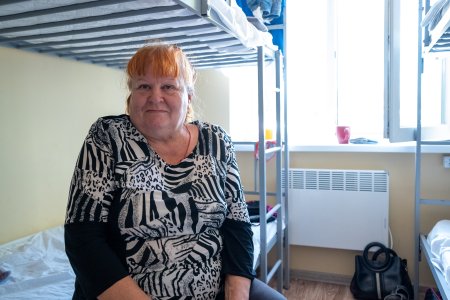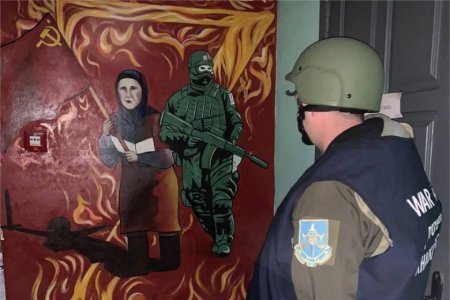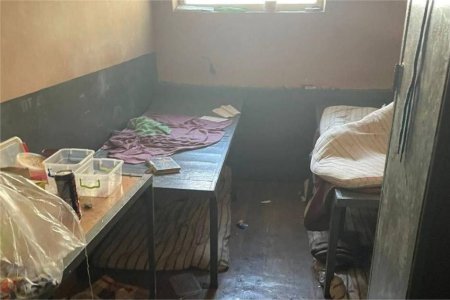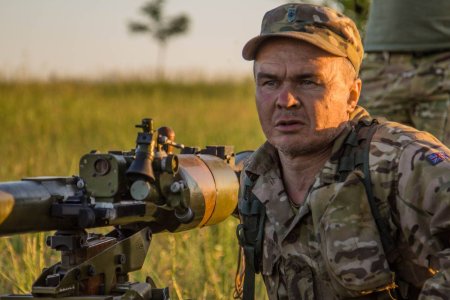My name is Artemova Halyna Yevhenivna. On the first day of the war, I woke up from hearing distant explosions. I lived in the Central district of Mariupol. They started shelling our Eastern MKR [micro-district]. I read in the news that the offensive and war had begun. These were the first impressions. We didn’t understand what to do or what would happen next. But shops, banks, and pharmacies were still open. It seemed that all this would not last long and would end in a few days, as it did in 2014.
It was terrifying on the 25th because pharmacies and banks stopped working.
But on the 26th, shops and pharmacies were opened. There was some hope among people that everything would get better; ATMs were filled with money. After 26 February, intense shelling of the Eastern Bank began, and people from the Left Bank began to move to the center. The shops were no longer open, but the military and police allowed people to come and pick up food and medicine. Apparently, the city was already surrounded.
Tell me, please, where were you at the time of the bombings, when these dangerous events took place?
I was at home, at 87 Metalurhiv Avenue. We lived on the first floor, so we were either in the corridor or in the vestibule. Only on the 20 March, we began to go down to the basement. But I witnessed shells flying into our yard. I heard explosions. A nearby house was hit by a shell and collapsed.
People were “picked up” by Russian snipers; they were lying on the street, and removing the bodies was very dangerous.
It’s good that it was very cold because our neighbors lay right in the middle of the road for about a week or two. We couldn’t pick them up, unfortunately. At night, they also bombed and shelled. I don’t know what they used; perhaps it was incendiary bombs because the houses began to burn. Since it was at night, people screamed for help, but no one could help them, although the neighbors were nearby. People were simply burning out. When this happened, there was no longer any public assistance because the State Emergency Service was utterly destroyed in the first days of the war.
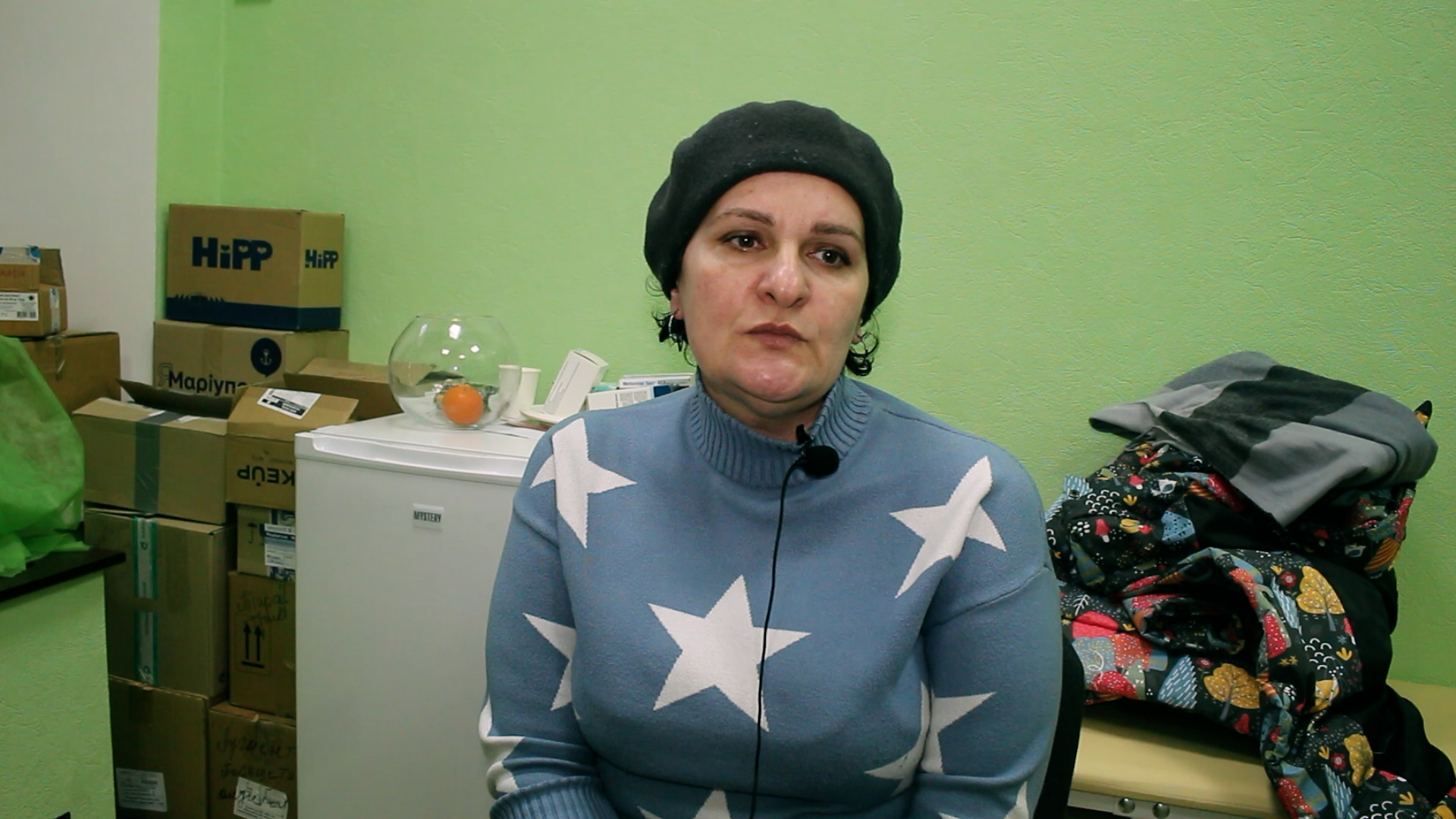
Please tell me, were you injured as a result of these attacks? If so, how did this happen?
Yes, I was affected: on 20 March, I was wounded in the back by a shell fragment. I was at home. My neighbors and I tried to save somehow the housing that remained. Our house burned down about 60%, but we managed to keep some apartments. I heard the smell of burning and entered the room, but there was shelling from that side.
I heard the sound of a shot but did not have time to hide. And when I left the room, I received shrapnel in my back.
On principle, I did not want to receive medical care in the occupied territory. Luckily for me, the wound was such that the bleeding stopped, and I could walk. I received medical assistance a week later when I left for Ukraine.
Please tell me, did you have direct contact or communication with the occupiers?
Yes, because we were in occupied territory. When a friend came for us on 23 March, we were leaving the Central District of Mariupol through the old cemetery, and we were walking in the direction of Savona — he was able to park the car there to take us out. We met with the military, and we saw the military riding in armored vehicles. They did not show aggression towards us. All men had their documents checked. Women and children were not checked. When we left Mariupol, there was a document check at the checkpoints. Again, only for men. It was 23 March.
![Джерело фото: Depositphotos [маріуполь]](https://khpg.org/files/img/1608818717.jpg)
We left for the territory of Ukraine on 31 March. We couldn’t leave earlier because the fighting was going on, and escaping was challenging. When we left, there were from 15 to 20 checkpoints where we were stopped, and everyone was checked, although there were two older women, me, and my disabled child. Everything was checked. They were trying to be polite because they had orders. But they had questions about some of the photos on my phone. I didn’t know how to answer the question of why I love Ukraine so much. Standing nearby were five armed men. You don’t know what to do when you have a child, a mother, and two people behind you who could get hurt. They were not aggressive, but at the same time, they were not friendly.
The DPR {Donetsk People’s Republic] militia behaved very aggressively. I can say that.
Since we left at the end of March, there have been no filtration camps yet, and no filtration as such yet. We were not in crowded places, as was the case in Berdiansk in gyms or Nikolske and Manhush. We left and were brought to our friend’s parents. We lived on a farm in the Zaporizhzhia region. We were there for a week, so we underwent no filtration procedures. We probably didn’t have any serious checks because we were a group of two women 80+ and 70+, me and my child with a disability certificate.
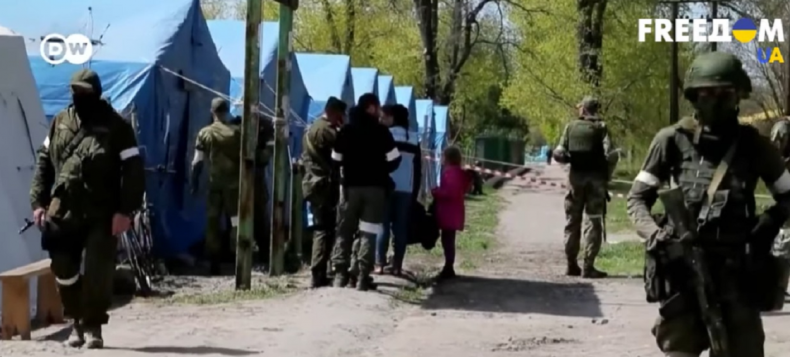
Please tell me, was your home damaged? In what condition is it now?
As of 15 February 2023, the building has already been demolished. There is nothing in that place anymore.
Tell me, please, when victory comes, and it will undoubtedly come, do you intend to return to Mariupol?
I will be thrilled to return home because I really miss home. I miss the sea, I miss the people, I miss the city itself.
